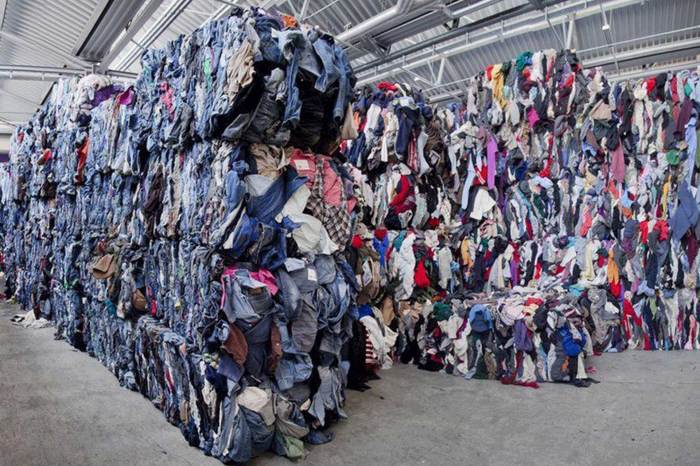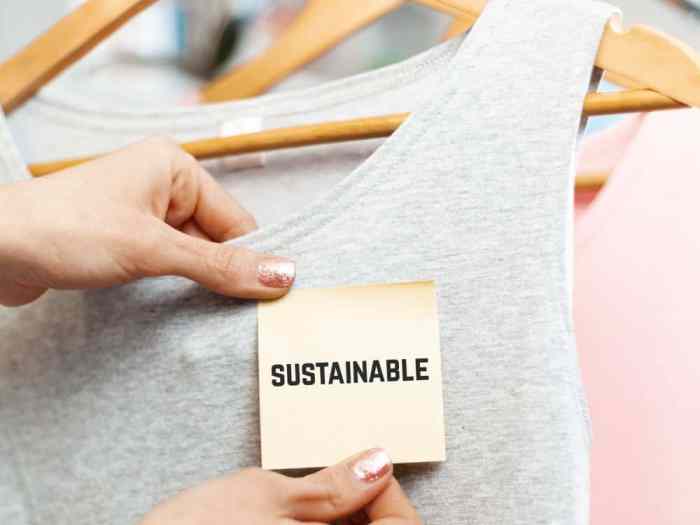Ethical fashion practices sets the stage for this enthralling narrative, offering readers a glimpse into a story that is rich in detail with American high school hip style and brimming with originality from the outset.
Exploring the importance of ethical fashion practices, the significance of sustainable materials, and the key elements that drive transparency in the industry.
Importance of Ethical Fashion Practices
Ethical fashion practices play a crucial role in the industry by promoting sustainability, fair labor conditions, and environmental protection. These practices ensure that the fashion industry operates in a responsible and ethical manner, benefiting both people and the environment.
Benefits of Ethical Fashion Practices
- Improved Working Conditions: Ethical fashion practices prioritize the well-being and safety of garment workers, ensuring fair wages and humane working conditions.
- Environmental Conservation: By using sustainable materials and production processes, ethical fashion practices help reduce the industry’s carbon footprint and minimize waste.
- Promotion of Fair Trade: Ethical fashion practices support fair trade principles, ensuring that artisans and workers are paid fairly for their craftsmanship.
Impact of Unethical Practices
Unethical practices in the fashion industry can lead to exploitation of workers, environmental degradation, and the perpetuation of harmful labor conditions. Fast fashion, for example, often relies on sweatshop labor and produces massive amounts of textile waste, contributing to pollution and social injustices.
Key Elements of Ethical Fashion Practices
Ethical fashion practices encompass various key elements that are essential for creating a sustainable and responsible fashion industry. These elements focus on promoting social and environmental responsibility throughout the entire supply chain.
Transparency in the Supply Chain
Transparency in the supply chain is a crucial component of ethical fashion practices. It involves disclosing information about the production processes, materials used, and the impact on workers and the environment. By being transparent, brands can build trust with consumers and ensure that ethical standards are being met.
Fair Labor Practices
Fair labor practices play a significant role in promoting ethical fashion. This includes providing safe working conditions, fair wages, and reasonable working hours for garment workers. By ensuring fair labor practices, brands can support the well-being of workers and uphold their dignity and rights in the fashion industry.
Sustainable Materials in Ethical Fashion

Using sustainable materials in ethical fashion is crucial for reducing the environmental impact of the fashion industry. By opting for materials that are eco-friendly and responsibly sourced, fashion brands can contribute to a more sustainable future for the planet.
Importance of Sustainable Materials
- Reduce Environmental Footprint: Sustainable materials like organic cotton, hemp, bamboo, and recycled polyester require fewer resources and energy to produce compared to traditional materials like conventional cotton or synthetic fabrics.
- Minimize Chemical Usage: Sustainable materials are often grown without the use of harmful pesticides and chemicals, which not only benefits the environment but also protects the health of farmers and workers in the supply chain.
- Promote Biodiversity: Choosing sustainable materials helps preserve ecosystems and wildlife by avoiding monoculture farming practices that can lead to habitat destruction and loss of biodiversity.
Comparison of Traditional vs. Sustainable Materials, Ethical fashion practices
| Traditional Materials | Sustainable Alternatives |
|---|---|
| Conventional Cotton: Requires large amounts of water and pesticides. | Organic Cotton: Grown without synthetic chemicals, promotes soil health. |
| Polyester: Derived from non-renewable fossil fuels, contributes to microplastic pollution. | Recycled Polyester: Made from post-consumer plastic bottles, reduces waste and energy consumption. |
| Leather: Production involves toxic tanning processes and deforestation. | Pinatex (Pineapple Leather): Made from pineapple leaf fibers, cruelty-free and sustainable. |
Ethical Production Processes: Ethical Fashion Practices

In the world of ethical fashion, production processes play a crucial role in ensuring fair treatment of workers and promoting sustainability. Ethical production practices focus on creating a positive impact on both people and the planet.
Fair Treatment of Workers
- One key aspect of ethical production processes is ensuring fair wages for workers. This means that workers are paid a living wage that covers their basic needs and allows them to support themselves and their families.
- Safe working conditions are also a priority in ethical production. This includes providing a safe and healthy work environment, implementing proper safety measures, and ensuring that workers are not exposed to harmful chemicals or substances.
- Respect for workers’ rights and well-being is essential in ethical production. This includes promoting equal opportunities, ensuring gender equality, and protecting workers from exploitation and discrimination.
Examples of Brands Implementing Ethical Production Practices
- Patagonia: Known for its commitment to sustainability, Patagonia ensures fair wages and safe working conditions for its workers. The brand also promotes transparency in its supply chain and actively works to reduce its environmental impact.
- Everlane: Everlane is dedicated to transparency and ethical production. The brand provides detailed information about its factories and production processes, highlighting fair wages and responsible practices.
- People Tree: People Tree is a pioneer in ethical fashion, working with Fair Trade producers to ensure fair treatment of workers. The brand focuses on organic and sustainable materials, as well as ethical production processes.